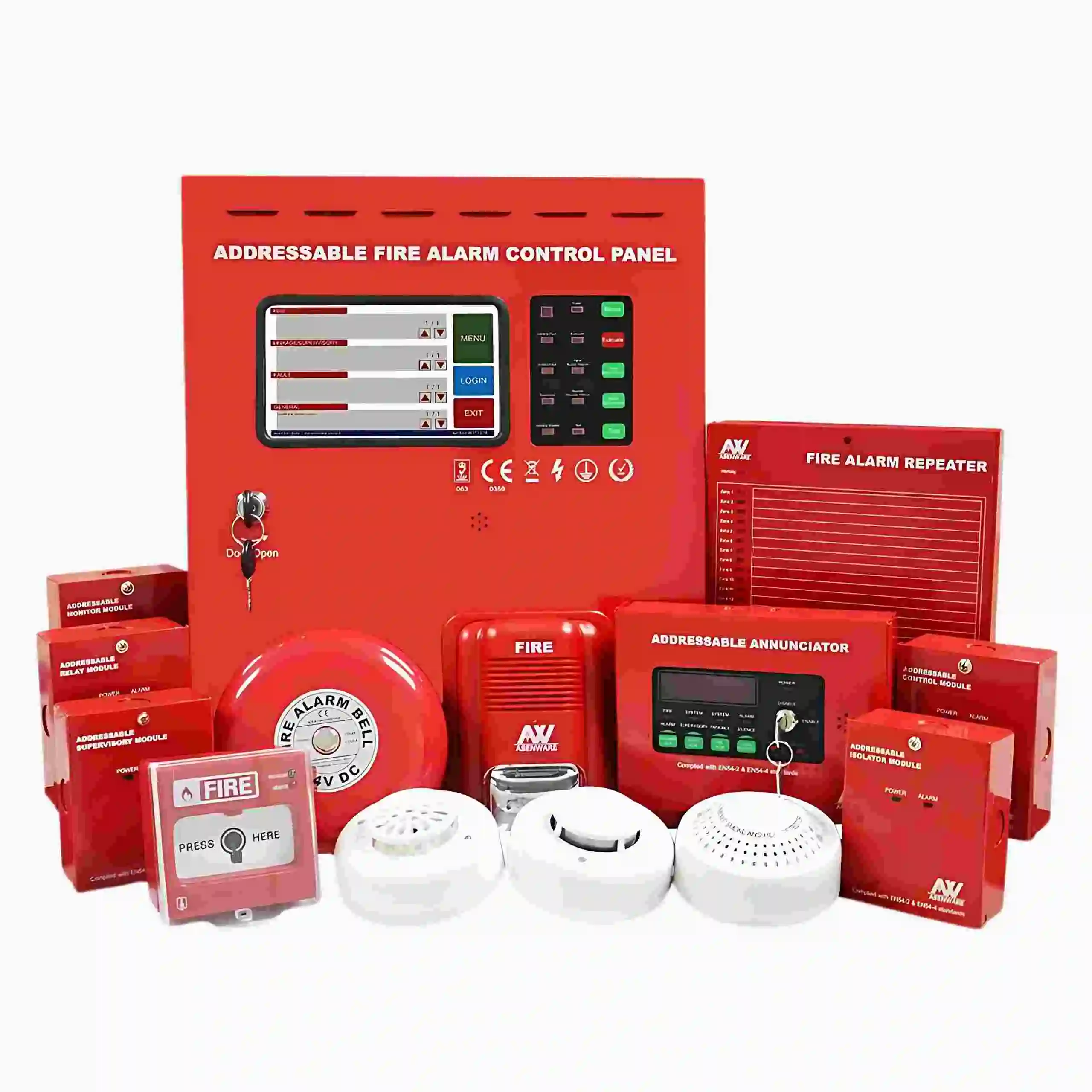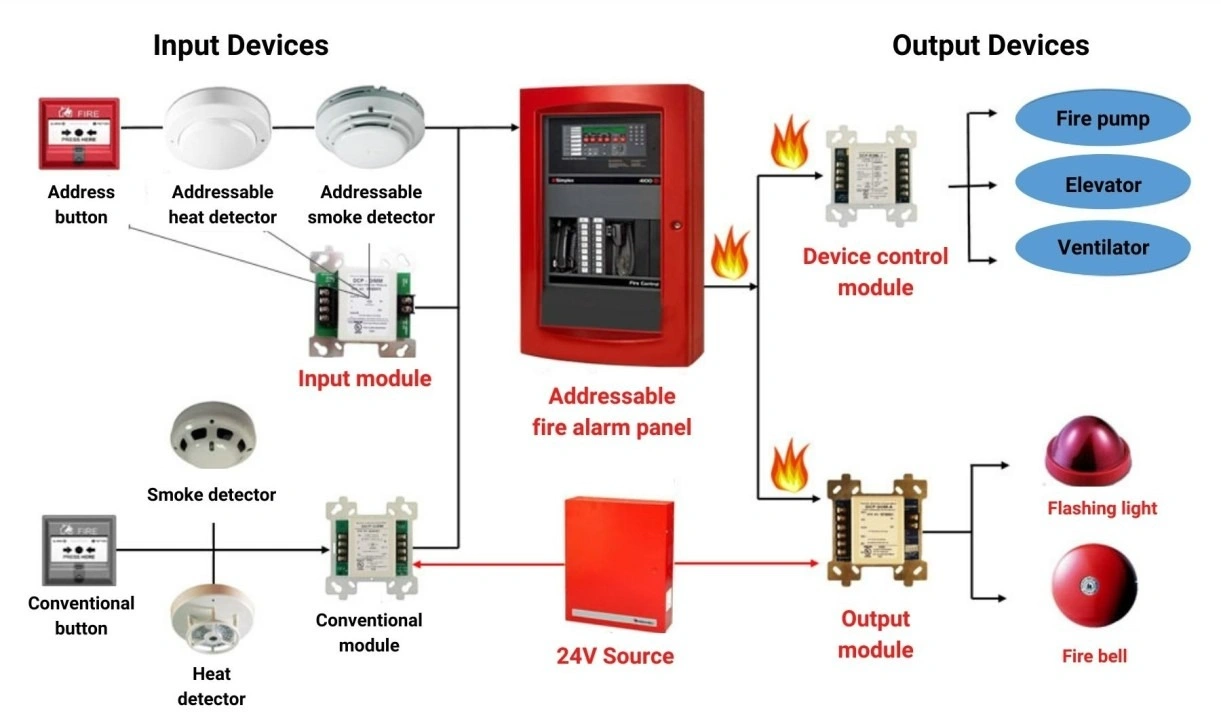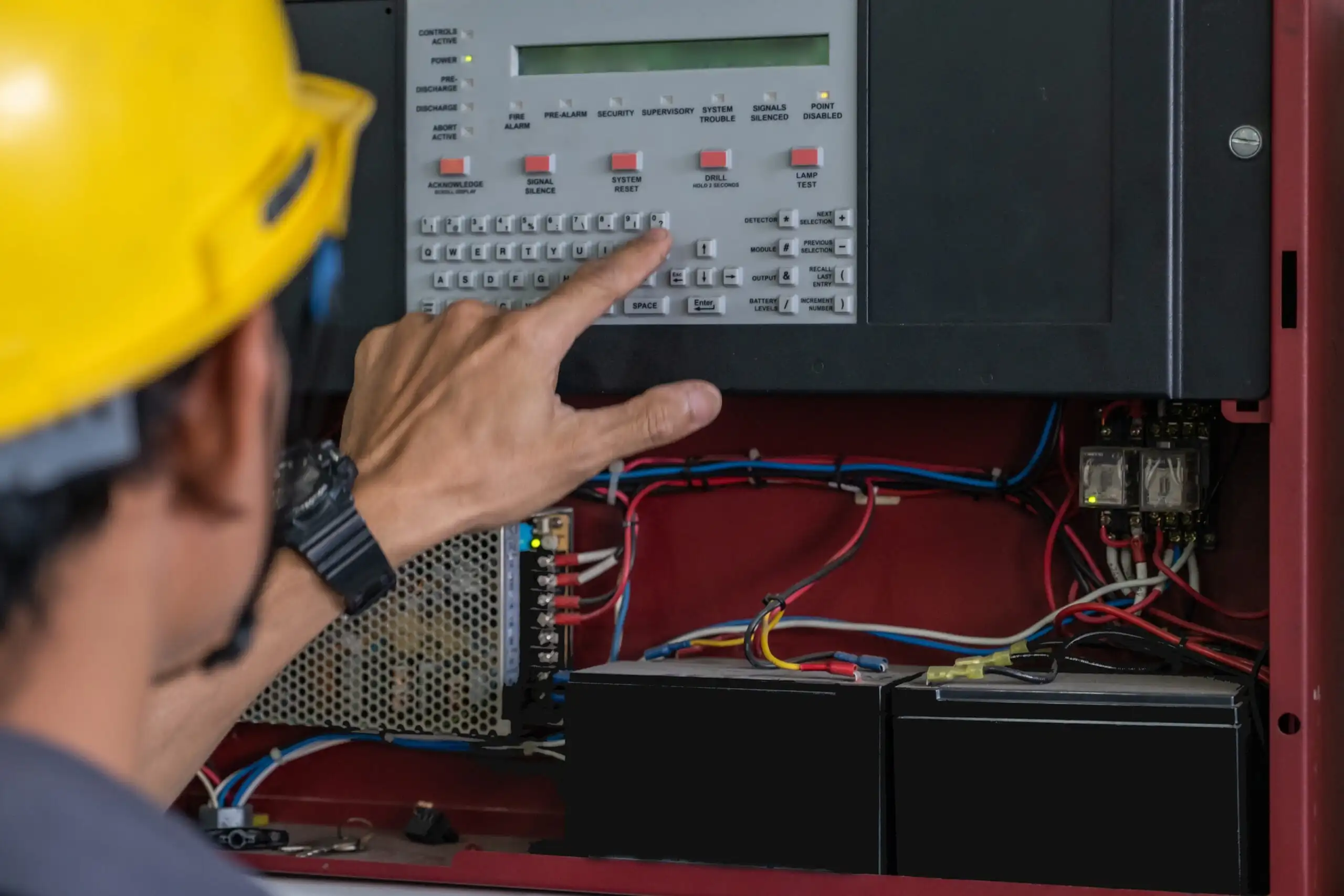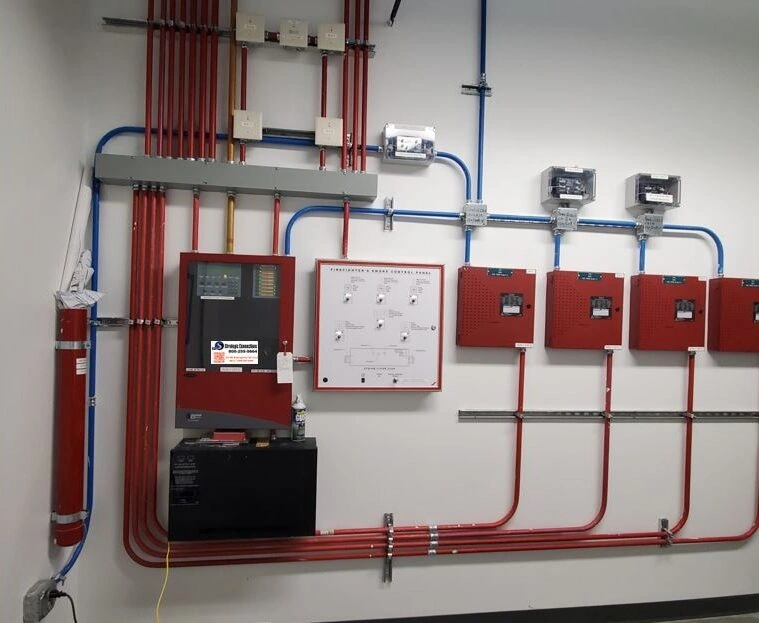What is a Fire Alarm System? Your Complete Guide to Safety & Protection with Zedex Fire
In today's world, where safety is paramount, a robust fire alarm system isn't just an option—it's an absolute necessity. Whether it's safeguarding your home, a bustling commercial establishment, or an industrial facility in Gurugram, Haryana, or the wider Delhi NCR region, a well-designed and maintained fire alarm system is your first line of defence against potential devastation. At Zedex Fire, we understand the critical importance of reliable fire detection systems. This comprehensive guide will demystify what a fire alarm system is, how it functions, and why partnering with an expert like Zedex Fire is crucial for your peace of mind and compliance.

Understanding the Core: What Exactly is a Fire Alarm System?
A fire alarm system is an integrated network of electronic devices designed to detect the presence of fire or its early signs (smoke, heat, carbon monoxide) and alert occupants, initiating a response to mitigate danger. Its primary function is to provide early warning, allowing for safe evacuation and prompt intervention by emergency services, thereby minimizing property damage and, most importantly, saving lives.
These sophisticated fire detection systems are engineered to operate continuously, monitoring designated areas 24/7 for any indicators of a fire hazard.
- Thermal Sensor Activation
- Optical Smoke Detection
- Automated Alarm Signaling
Why is a Reliable Fire Alarm System Indispensable for Your Property?
Investing in a high-quality fire alarm system from Zedex Fire offers multi-faceted benefits, crucial for any property owner or facility manager in Gurugram and beyond:
Life Safety
The most vital role. Early detection provides precious minutes for safe evacuation, preventing injury and fatalities.
Property Protection
Prompt alerts enable quick fire suppression efforts, significantly reducing damage to buildings, assets, and critical infrastructure.
Regulatory Compliance
In India, various building codes and fire safety regulations (e.g., National Building Code of India, local municipal bylaws) mandate the installation and maintenance of certified fire alarm systems for different types of establishments. Zedex Fire ensures your system adheres to all necessary compliance standards.
Business Continuity
For commercial and industrial clients, a functional fire alarm system helps mitigate risks that could lead to costly downtime and operational disruptions.
Insurance Benefits
Many insurance providers offer reduced premiums for properties equipped with advanced, well-maintained fire detection systems.
The Anatomy of Safety : Key Components of a Fire Alarm System
A typical fire alarm system comprises several interconnected components, each playing a vital role in the detection and notification process :

1. Fire Alarm Control Panel (FACP)
The Brain of the System: This central hub monitors input from all detection devices, processes signals, activates notification appliances, and transmits information to monitoring stations. Zedex Fire installs advanced FACPs that offer robust control and diagnostic capabilities.
2. Initiating Devices (Detectors)
Smoke Detectors:
Designed to detect smoke particles. Common types include:
- •Ionization Smoke Detectors: Sensitive to fast-flaming fires.
- •Photoelectric Smoke Detectors: More effective for slow, smoldering fires.
Heat Detectors:
Respond to abnormal increases in temperature.
- •Fixed Temperature Detectors: Activate when a pre-set temperature is reached.
- •Rate-of-Rise Heat Detectors: Activate when the temperature increases rapidly.
Carbon Monoxide (CO) Detectors:
Detect the presence of the odorless, colorless, and poisonous CO gas, often a byproduct of incomplete combustion.
Manual Call Points (Manual Pull Stations):
Allow occupants to manually initiate an alarm by pulling a lever, providing a crucial human interface for early reporting.
3. Notification Appliances:
Sounders (Alarms):
Produce loud audible signals (horns, bells) to alert occupants.
Strobes (Visual Alarms):
Emit bright flashing lights, crucial for individuals with hearing impairments or in noisy environments.
Speakers/Voice Evacuation Systems:
Provide clear, intelligible voice messages guiding occupants during an emergency, often used in large commercial or public buildings.
4. Power Supplies:
Primary Power:
Typically drawn from the building's electrical system.
Secondary (Backup) Power:
Batteries or generators ensure the system remains operational during power outages.
5. Annunciators:
Remote panels that display the status of the fire alarm system, often located near building entrances for emergency responders.
Invest in Your Safety with Zedex Fire
Whether it's safeguarding your home, a bustling commercial establishment, or an industrial facility in Gurugram, Haryana, or the wider Delhi NCR region, a well-designed and maintained fire alarm system is your first line of defence against potential devastation.
Contact Our Safety ExpertsHow Does a Fire Alarm System Work? A Step-by-Step Overview
The operation of a fire alarm system follows a precise sequence to ensure rapid and effective response:

Detection
An initiating device (e.g., a smoke detector or heat detector) senses early signs of a fire. A person can also activate a manual call point.
Signal Transmission
The activated device sends a signal to the Fire Alarm Control Panel (FACP).
Processing & Verification
The FACP analyzes the signal. In advanced systems, it might verify the alarm to prevent false alarms.
Alarm Activation
If a true fire condition is confirmed, the FACP activates the notification appliances (sounders, strobes, voice evacuation) throughout the building.
Emergency Response Notification
The FACP automatically transmits a signal to a central monitoring station or directly to the fire department (depending on system configuration and local regulations).
System Monitoring
The FACP continuously monitors all components for faults, power failures, or disconnections, ensuring the system is always ready.
Types of Fire Alarm Systems : Finding the Right Fit for Your Needs
Understanding different fire alarm system types is essential for optimal protection. Zedex Fire specializes in the installation and maintenance of all major categories:

Conventional Fire Alarm Systems
Divide a building into detection zones. When an alarm triggers, the panel indicates the zone, but not the exact device location. Ideal for smaller buildings.
Addressable Fire Alarm Systems
Each device has a unique 'address,' allowing the control panel to pinpoint the exact location of a fire or fault. Highly efficient for larger, more complex properties.
Wireless Fire Alarm Systems
Utilize secure radio frequencies to connect devices, eliminating the need for extensive wiring. Offers flexibility, easier installation, and is ideal for heritage buildings or properties where wiring is challenging.
Intelligent/Analogue Addressable Systems
These advanced systems continuously monitor detector levels and can 'learn' normal environmental conditions, significantly reducing false alarms and providing more precise fire indications.
Choosing the Right Fire Alarm System with Zedex Fire
Selecting the ideal fire detection system involves considering various factors:
- the size and type of your property (residential, commercial, industrial)
- local building codes
- budget
- specific risks
At Zedex Fire, our experts provide tailored advice, ensuring you get a system that's not just functional but perfectly suited to your unique requirements. We conduct thorough site assessments and offer comprehensive fire alarm system installation services across Gurugram, Haryana, and Delhi NCR.
Get Expert ConsultationZedex Fire: Your Trusted Partner in Fire Safety
With a reputation built on technical excellence and local expertise, we go beyond products—we deliver reliable protection and lasting peace of mind.
Expert Consultation & System Design
Our seasoned fire safety engineers conduct site assessments and risk evaluations to design intelligent, tailor-made fire alarm systems that meet rigorous standards and your facility’s exact needs.
Certified & Professional Installation
Our trained, licensed technicians ensure each system is meticulously installed, tested, and fully compliant with NBC and local fire regulations for total peace of mind.
Proactive Maintenance & Servicing
We offer comprehensive maintenance plans that include inspections, performance testing, and system recalibration—ensuring your fire alarm operates 24/7 without fail.
24/7 Monitoring & Emergency Response
Certain systems include round-the-clock monitoring with direct alert capabilities to fire departments or safety teams for rapid action in emergencies.
Deep Local Expertise
Based in Gurugram and serving all of Delhi NCR, we understand regional compliance codes, permitting challenges, and environmental conditions—delivering superior local support.
Frequently Asked Questions
Explore common questions about fire alarm systems, answered by the experts at Zedex Fire.
Secure Your Property Today with Zedex Fire's Expert Fire Alarm Solutions!
Don’t wait for a crisis to act. Partner with Zedex Fire for state-of-the-art fire alarm system installation, proactive maintenance, and comprehensive fire safety solutions tailored for your peace of mind.
Get FREE ConsultationNow serving Gurugram, Haryana & Delhi NCR